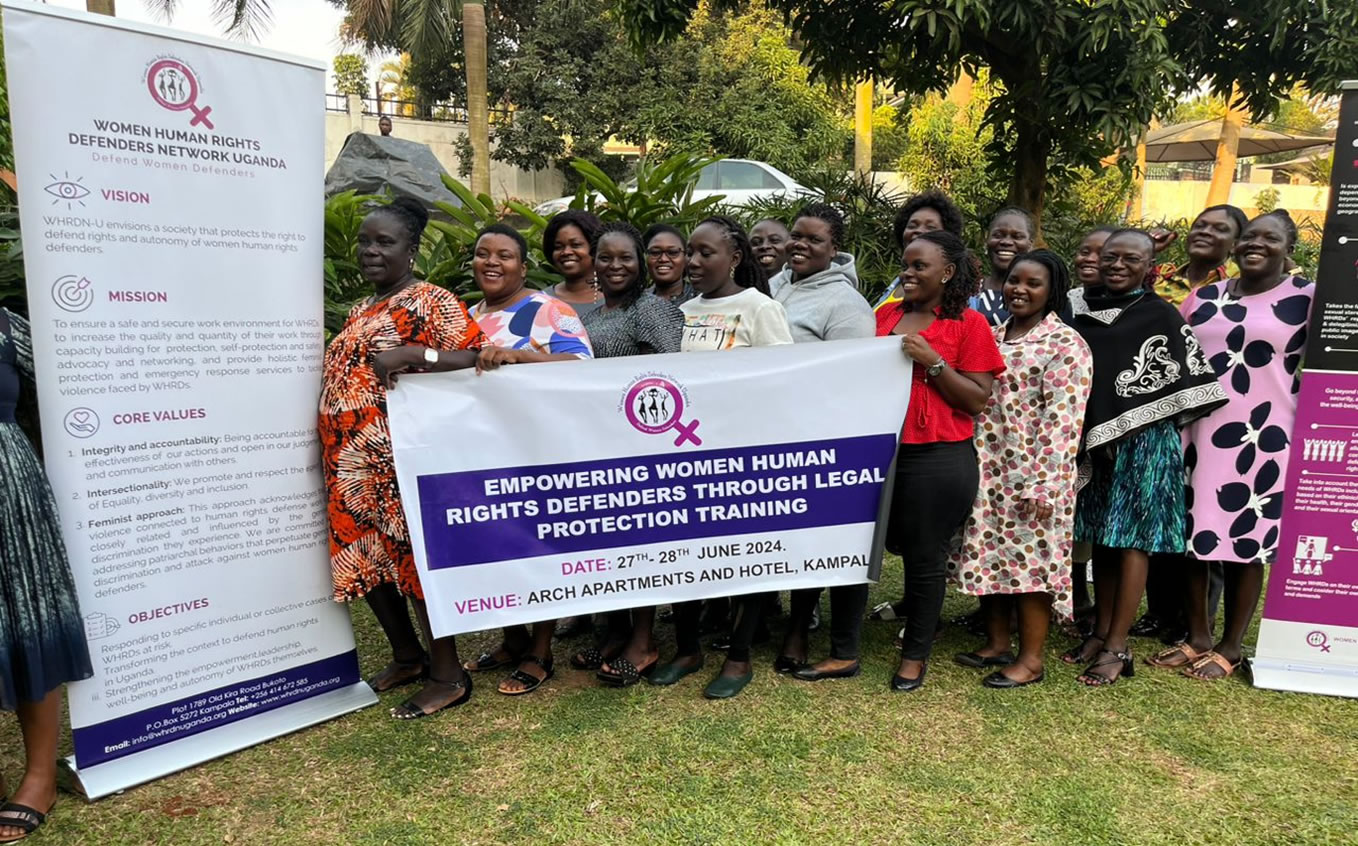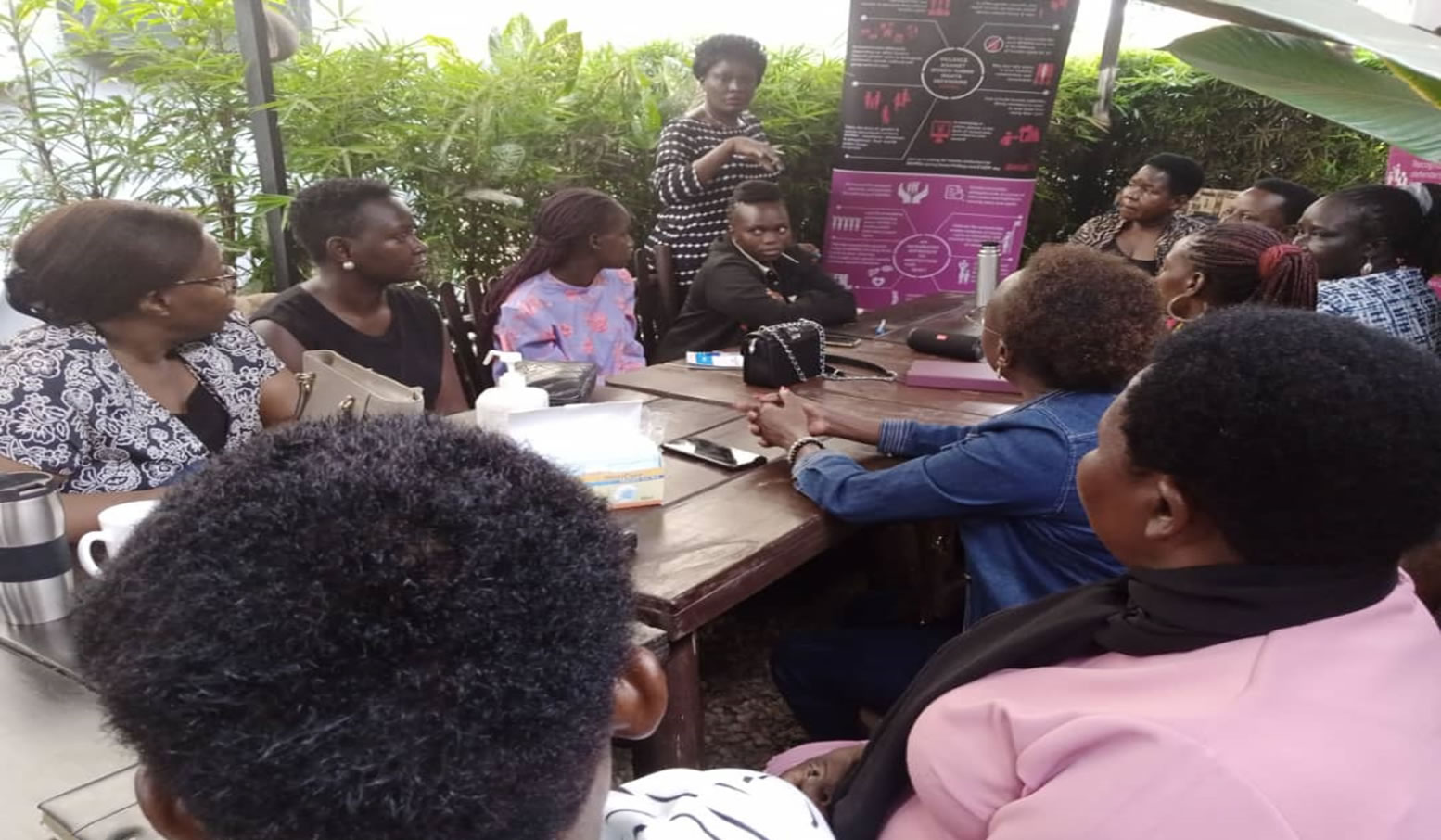The Women Human Rights Defenders Network Uganda (WHRDN-U) recently conducted a two-day legal protection training for Women Human Rights Defenders (WHRDs) and staff from community-based organizations (CBOs) and non-governmental organizations (NGOs). The workshop, held on 27th and 28th June 2024 at Arch Apartments Hotel, Ntinda, aimed to equip WHRDs with the skills to navigate Uganda’s complex legal compliance landscape. The training addressed the growing risks posed by the shrinking civic space and restrictive regulations that threaten WHRDs’ advocacy efforts.
Objectives of the Training
- Reflecting on Civic Space: Assess the state of Uganda’s civic space and its impact on WHRDs’ work.
- Legal Compliance Awareness: Increase awareness of Uganda’s legal obligations for WHRDs and their organizations.
- Developing Resilient Strategies: Develop strategies to help WHRDs navigate the current operating environment.
Key Training Components
- Understanding Legal Obligations: Facilitated by legal experts from Chapter Four Uganda, participants learned about NGO registration, data protection, submission of annual returns, and filing of key organizational documents with the Uganda Registration Services Bureau (URSB) and other authorities.
- Navigating Civic Space Challenges: The training highlighted challenges faced by WHRDs, such as complex registration processes, permit renewals, multiple reporting obligations, and negative rhetoric from government actors. Participants shared their experiences and explored strategies to overcome these obstacles.
- Addressing Anti-Money Laundering Compliance: Participants were introduced to compliance measures under Uganda’s anti-money laundering laws, focusing on identifying and mitigating risks associated with currency smuggling, false invoicing, and fund blending.
- Building Resilient Legal Strategies: WHRDs discussed how to strengthen organizational compliance by updating URSB information, filing company forms, renewing NGO permits, and registering organizational assets. Practical steps for ensuring compliance with the Financial Intelligence Authority (FIA), NGO Bureau, and Personal Data Protection Office (PDPO) were also shared.
Notable Reflections from WHRDs
- One participant shared plans to maintain a dedicated register of directors and strengthen data protection protocols.
- Another participant committed to incorporating key policies into their organization’s operations.
- Others resolved to update their organizational addresses with the NGO Bureau, register their organization’s telephone in the entity’s name, and develop comprehensive data protection policies.
- Participants also committed to meeting permit renewal requirements, training staff on data protection, and registering their organizations with the PDPO.
The training achieved significant outcomes, including:
- Increased Legal Awareness: Participants gained in-depth understanding of Uganda’s regulatory landscape, empowering them to ensure compliance with legal obligations.
- Improved Organizational Compliance: WHRDs now understand how to manage permit renewals, file returns, and safeguard organizational data.
- Capacity Building: WHRDs committed to building internal systems to ensure consistent compliance with financial, legal, and data protection regulations.
The legal protection training marked a significant step towards ensuring that WHRDs operate in a legally compliant, safe, and sustainable manner. By fostering greater awareness and capacity, WHRDs are now better equipped to overcome operational challenges and continue their vital advocacy for human rights. The Women Human Rights Defenders Network Uganda (WHRDN-U) remains committed to supporting WHRDs as they work towards a more just, inclusive, and rights-respecting society.

